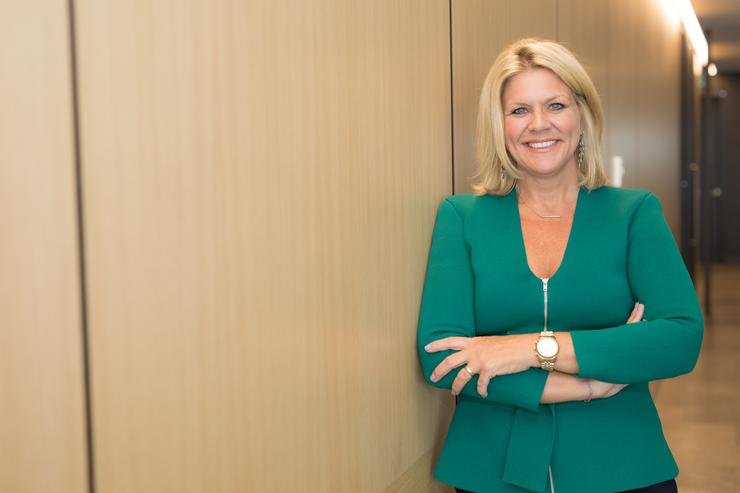
Lynn Kraus (EY)
Change is always a good thing, so the saying goes.
In a market obsessed by transformation, and driven by disruption, the change-or-die attitude infiltrating the Australian and New Zealand markets appears stronger than ever.
But amid a rising tide of industry opinion, those stepping back from the rat-race to observe the market from afar are finding success.
Because change for change’s sake is at times dangerous, on occasions difficult and usually downright delusional.
And EY is taking a stance. Refusing to run down dead-ends in the pursuit of perceived transformation, rather staying true to core capabilities in a bid to capitalise on the advancements of technology.
“We’re making decisions based around invest, build or partner,” observed Lynn Kraus, managing partner of Oceania Advisory, EY. “This is the philosophy we have. If it complements our core skills then we will look to either invest or build in that capability.
“But if not, and there is a party in the market providing that skill-set already, then we would look to form an alliance with that company in some capacity.”
In leveraging more than 20 years’ experience in both corporate and consulting environments - spanning US and Australian markers - Kraus is responsible for managing and leading EY’s advisory practice, specialising across risk, cyber security, digital solutions, data analytics, strategy and performance improvement.
“Clients come to EY because we are an organisation that has a brand associated with quality,” added Kraus, who first joined the firm in 2004. “That has come from a long time of understanding business and business processes.
“To be successful we believe we need to stick with that and we don’t feel an obligation to go outside of our core capability.”
Despite acknowledging that the consultancy giant essentially plays “across the board” in terms of technology, Kraus said data, analytics and digital constitute the beating heart of the business.
These key technologies, blending established and emerging capabilities, operate within the framework of cyber security, recognised as a key component of the EY armoury.
“This hasn’t been a flick of a switch overnight,” Kraus added. “Technology has always been there in some capacity within EY, but clearly during the past three or four years, this has seen a significant shift.
“Our core, especially in the context of management consulting, is about understanding business transformation and you cannot do that in today’s world without a true understanding of technology. Everything is underpinned by digital.”
To offer end-to-end business transformation solutions, no consulting firm can ignore technology.
 Credit: Christine Wong
Credit: Christine Wong And while Kraus was quick to confirm that EY has never neglected such a market, the experienced consultant acknowledged that previously, those skills were not readily available.
“Now we have a balanced approach and if required, work through alliance partners,” Kraus explained. “We don’t hold the view that we have to build everything ourselves.
“But previously we didn’t have the strength of those relationships that are required to build trust with our clients.”
Risk
From a bird’s eye view, EY is a beast of an organisation.
Spearheaded globally by CEO, Mark Weinberger, the organisation houses approximately 247,570 employees, providing advice and guidance from over 700 offices across more than 150 countries, with worldwide revenues in excess of US$31.4 billion.
Closer to home, Tony Johnson runs the billion-dollar Oceania operation, overseeing six locations in Australia, spanning Adelaide, Brisbane, Canberra, Melbourne, Perth, Sydney, in addition to offices in Auckland, Christchurch and Wellington.
In operating as a global market leader, and forming a quarter of the Big Four, EY is renowned for expertise across assurance, tax, transaction and advisory services.
“One of the core components of what EY stands for, and has a history of and reputation for, is risk,” Kraus added.
For Kraus, risk comes in multiple forms with varying degrees of severity, severity that is only heightened in a world now dominated by digital technologies.
“When you extend risk to the world of data, we have alignment in the market,” Kraus said. “Cyber identity and protection of data fit with the EY brand that we have developed over decades, specifically around risk.”
With businesses today now digital by default, and design, organisations of all sizes are becoming more vulnerable to risk, as cyber attacks across the world explode at a devastating pace.
The World Economic Forum now rates a large-scale breach of cyber security as one of the five most serious risks facing the world today.
And the scale of the threat is expanding drastically: by 2021, the global cost of cyber security breaches will reach US$6 trillion by some estimates, double the total for 2015, according to Cybersecurity Ventures' Cybercrime Report 2017.
Specific to Australia, recent EY research uncovered an alarming lack of activity in response to the recently introduced data breach notification laws, with 25 per cent of local corporates simply unprepared.
“If you think of the multi-million dollar fines associated with each breach then this is concerning,” Kraus observed. “For a long time, we’ve seen business leaders understanding the issue of security, but not necessarily feeling the impact themselves or recognising that they will be impacted.
Read more on the next page...




